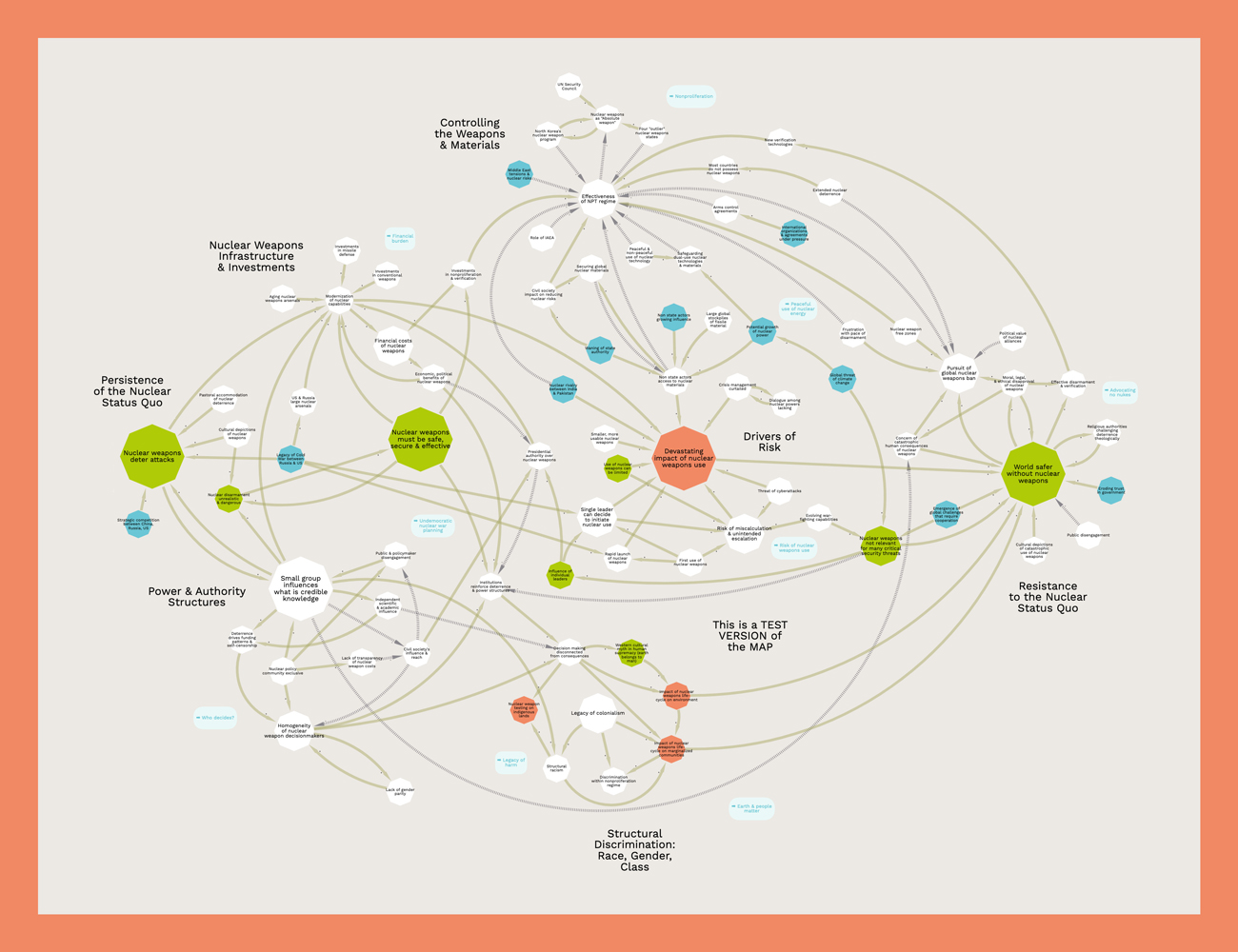
Horizon 2045 is a long-term systems change effort to end the nuclear weapons century. By expanding the scope of global security and linking nuclear threat to the intertwined existential risks of the Anthropocene, we increase the surface area for whole-of-society collaboration and shared learning. More information can be found on the H2045 website and in the Framework for Change publication.
The snippets of work shown here were produced for Phase I of the project, during my time as Nuclear Systems Design Fellow at RISD’s Center for Complexity and Art Director with Altimeter Design Group in close collaboration with the Nuclear Threat Initiative and N Square.
The snippets of work shown here were produced for Phase I of the project, during my time as Nuclear Systems Design Fellow at RISD’s Center for Complexity and Art Director with Altimeter Design Group in close collaboration with the Nuclear Threat Initiative and N Square.
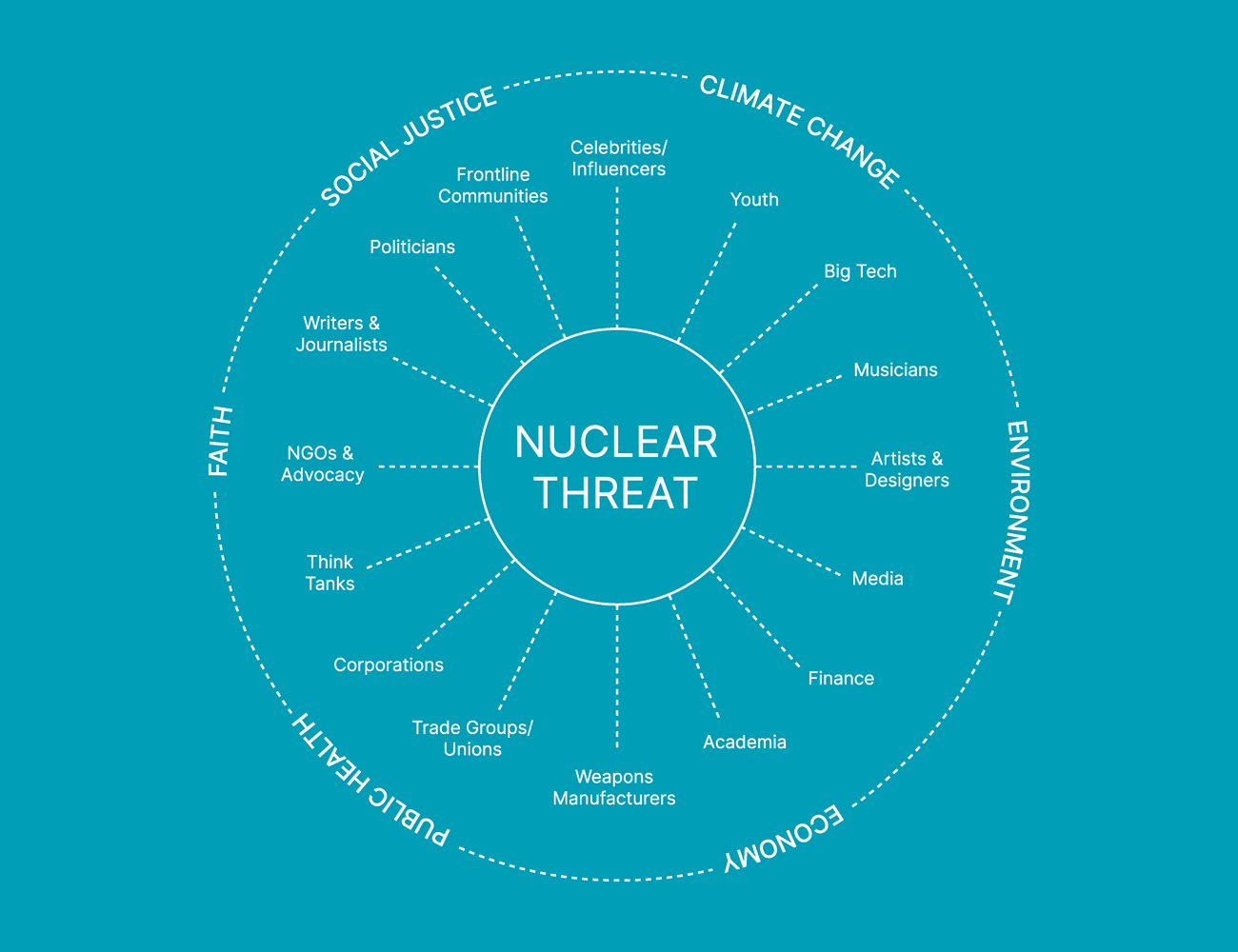

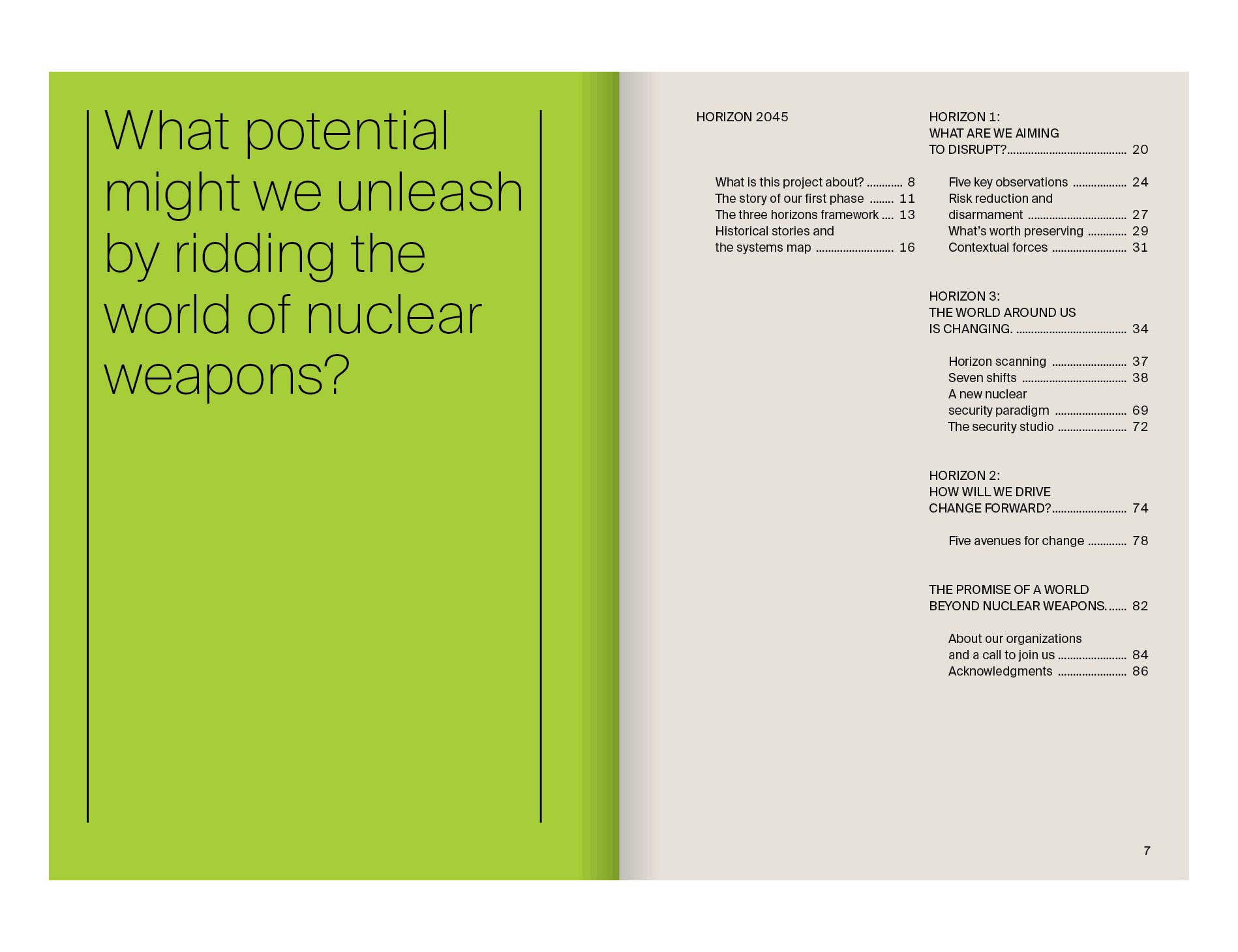
The nuclear weapons system is sprawling and secretive, maintaining itself and resisting change through a complex set of dynamics. H2045 created a first-of-its-kind systems map that reveals underlying incentives driving the status quo, highlights entrypoints for a range of stakeholders, and identifies possible leverage points for high-impact interventions. The research illuminates five key vulnerabilities in the present system:
- The system runs on unproven beliefs and assumptions
- The system is self-isolating
- The system is riddled with risk
- The system creates and perpetuates deep inequality
- The system has mechanisms for resisting change
Setting systems change in motion requires not only a deep understanding of the current state, but also the vision for a brighter future worth strategically striving towards. H2045 uses foresight practices to better understand the contextual forces bringing about rapid change in societies. This futures work includes a series of speculative artefacts. They bring life to the seven shifts considered foundational to a preferred future security architecture:
- We untether from the past and orient to the future
- We safeguard the wellbeing—and the promise—of future generations
- Humans become more accountable to the natural world
- We reshape and resize our approaches to problem-solving
- We embrace a more democratic orchestration of knowledge
- The world becomes far more transparent and knowable
- Managing the commons becomes common sense


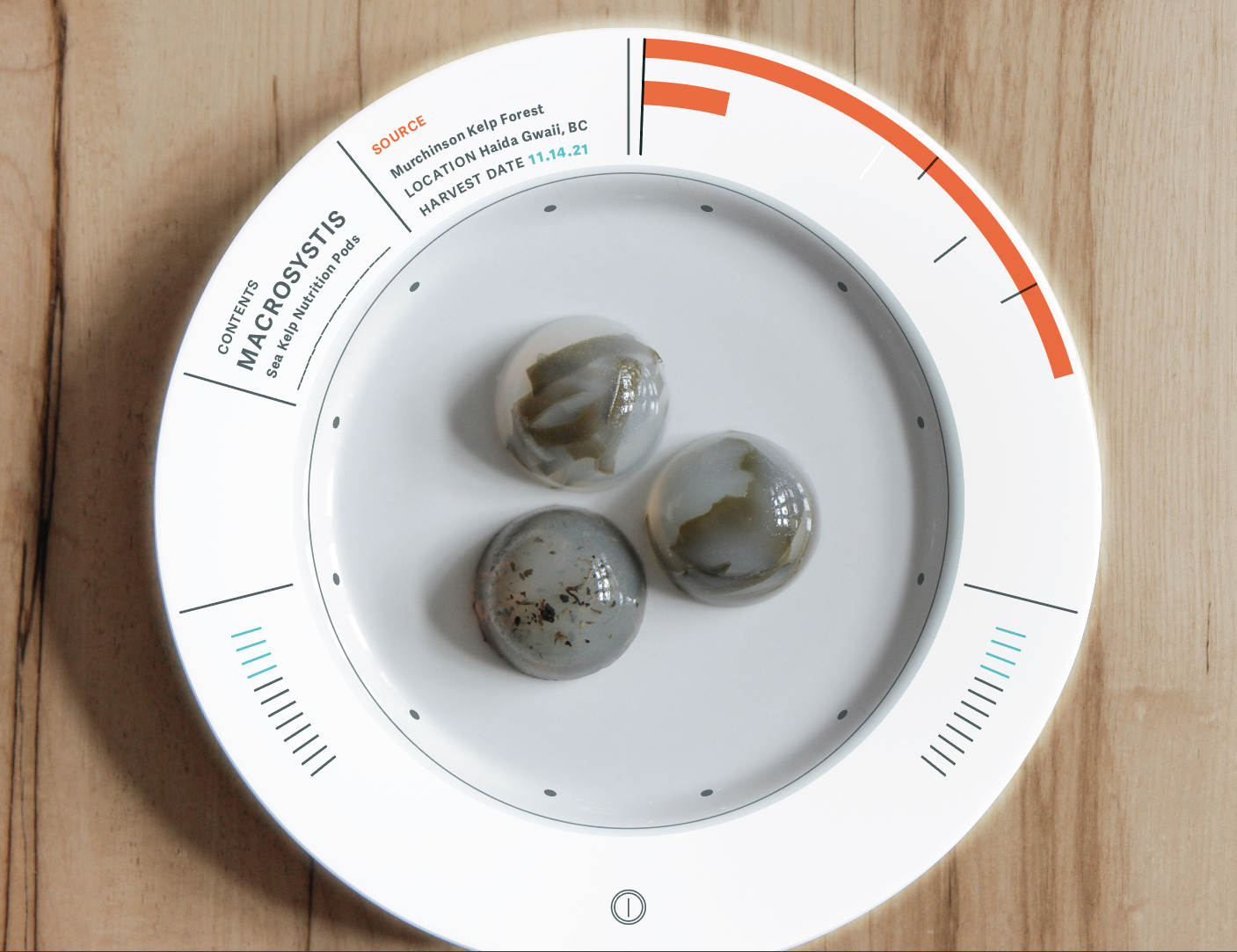




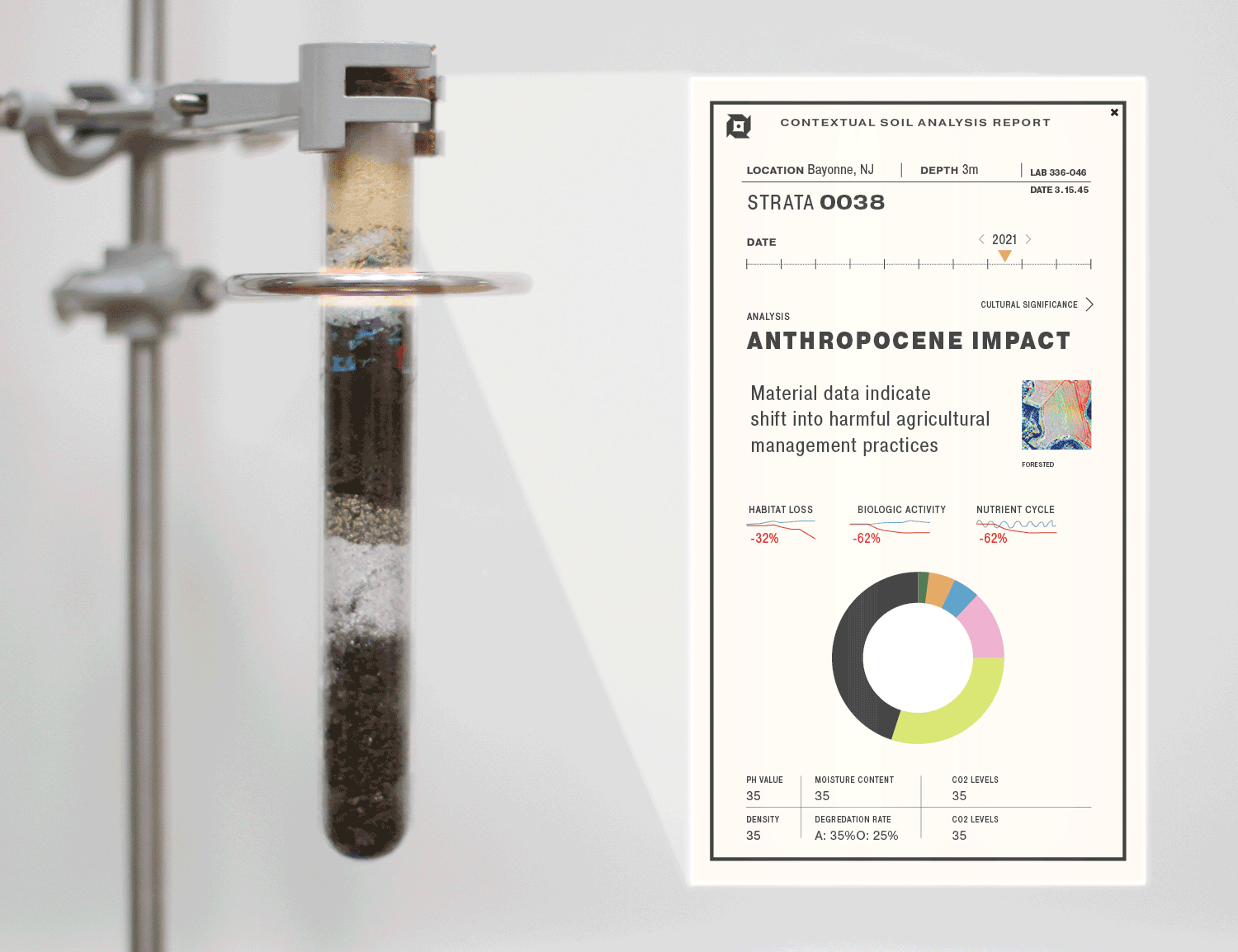

*Prototype production in collaboration with Kate Dannessa, Rives Matson, Brian Payne, and Jacob Dangstorp
